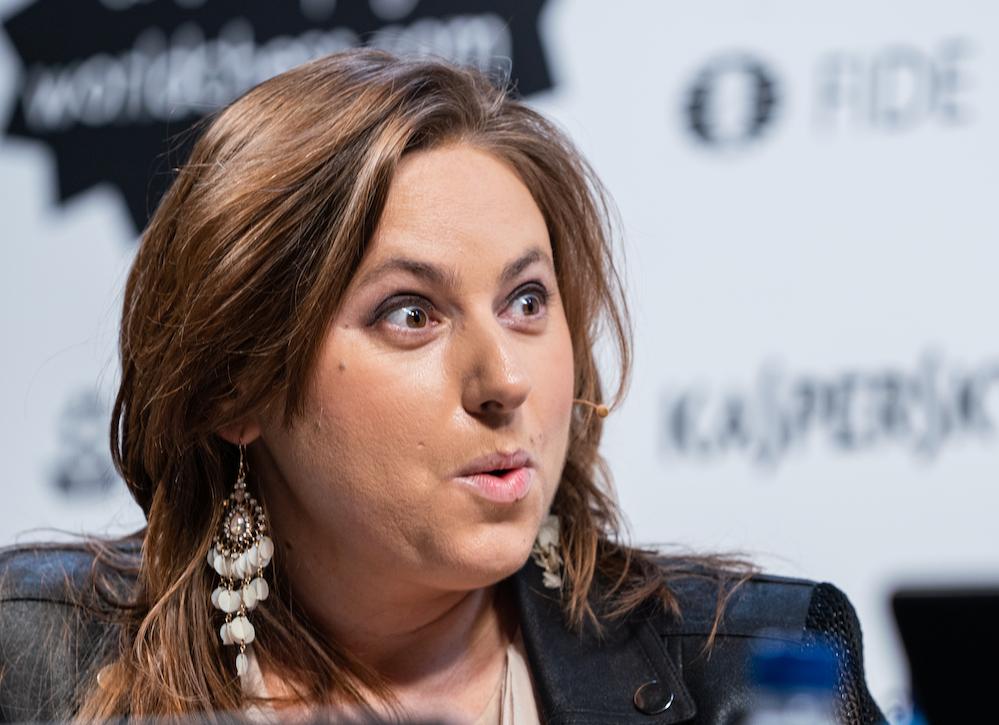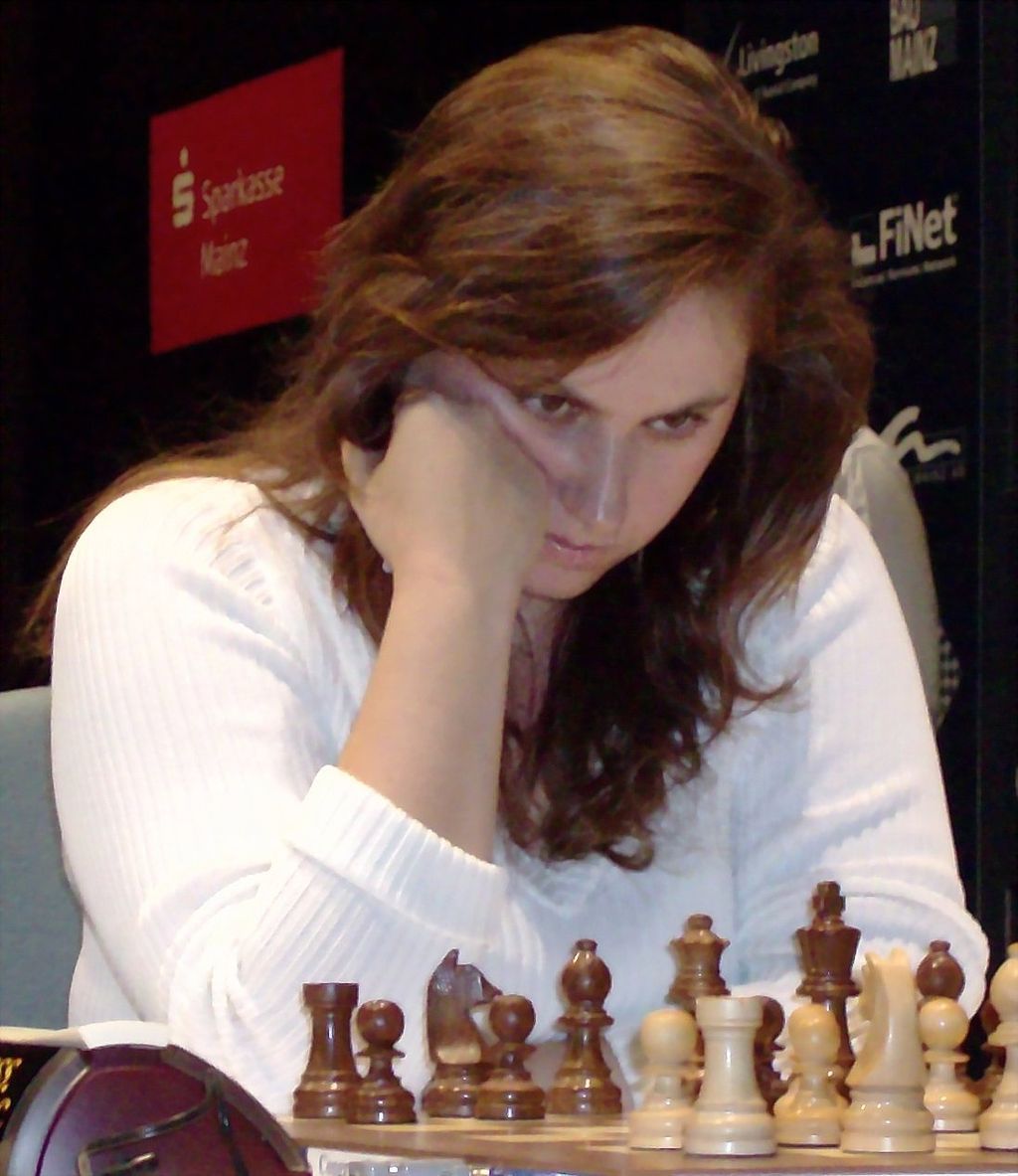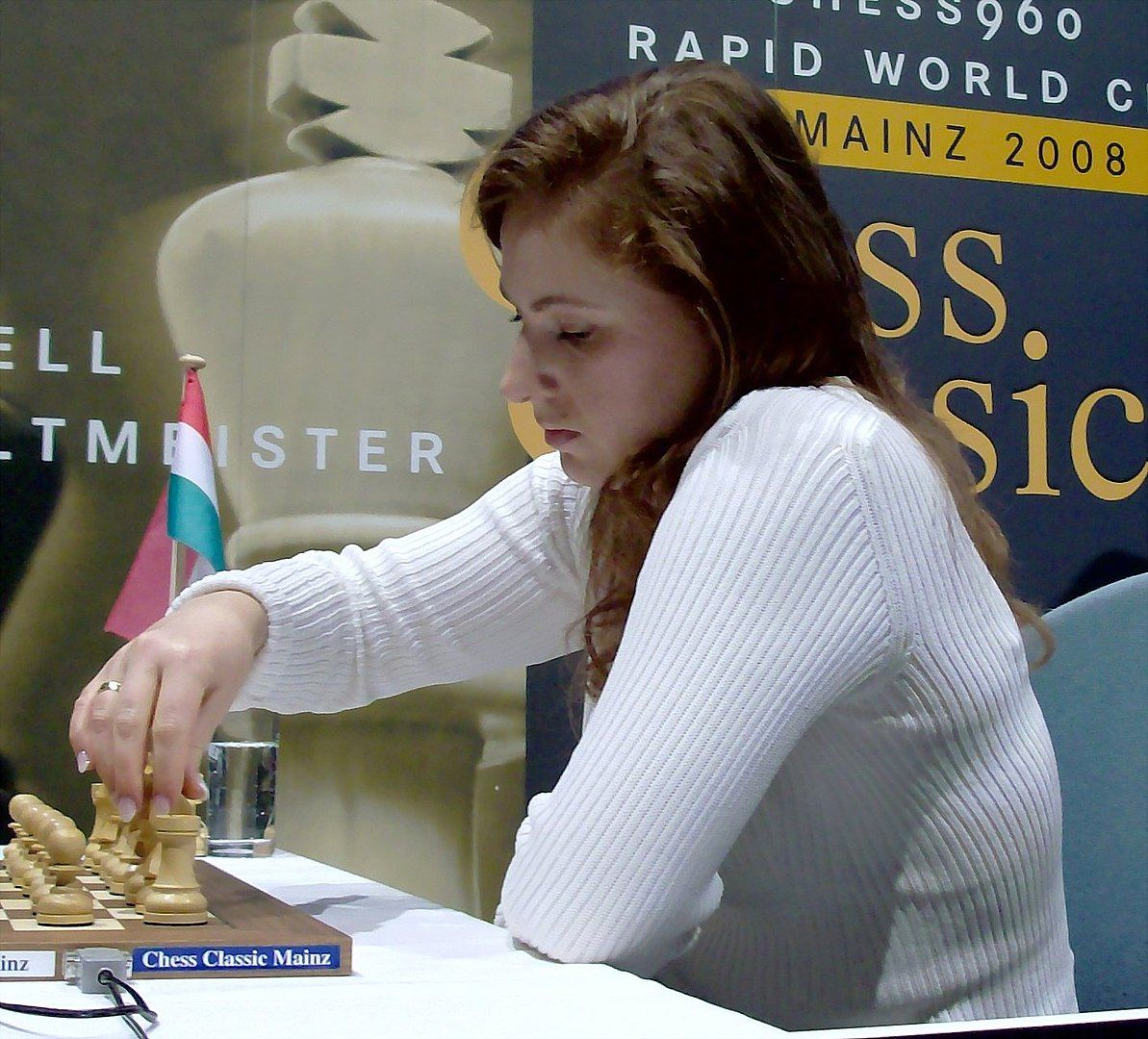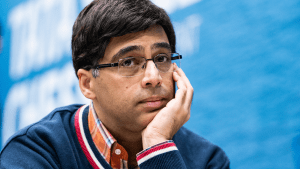
Judit Polgar Interview: 'I Had To Prove Myself More Than A Boy'
Judit Polgar, the strongest female chess player of all time, speaks to David Cox about growing up as part of her father Laszlo's groundbreaking educational experiment, the famous touch-move controversy when she played Garry Kasparov in 1994 and why no other woman in chess history has come close to her achievements.
Polgar’s life was never going to be ordinary. Few athletes have grown up as part of a revolutionary educational experiment, one which is still discussed by psychologists today as part of the nature-vs-nurture debate.
Polgar’s father Laszlo, an educational psychologist, believed that any child is capable of achieving exceptional things if trained in a specialist subject from a young age. He attempted to prove this with his three daughters who were all home-schooled, with chess the focus of their education.
From the start, the Polgar family faced obstacles, first from the socialist government, which opposed home schooling, and later from the Hungarian chess federation.
All three sisters ultimately achieved remarkable success, but Judit was always the outstanding talent. At just 12, she was already ranked number 55 in the world, and in 1991, at age 15, she became the youngest grandmaster up to that point in history.
During two decades at the highest level, she recorded wins against almost all the leading players of her generation, and famously changed the opinion of Kasparov.
In 1989, Kasparov told Playboy magazine, "Chess does not fit women properly. It’s a fight, you know? Women are weaker fighters." But by the end of Polgar’s career he had revised that view, writing that based upon her games, "if to play like a girl meant anything in chess, it would mean relentless aggression."
Polgar is now 42, and retired from full-time competition after a life of achievement in chess.

The interview was conducted via phone, and text may have been edited for clarity or length.
Chess.com: Your father once famously said "geniuses are made, not born." How much do you agree with that statement?
Judit Polgar: It’s obviously a very provocative statement. I kind of agree with it. What my father is trying to say is that you have to focus a lot on the work and not just rely on your talent. He believes that every healthy child is a talented one and I completely agree. Children have enormous potential, and most of the time, pre-schools and school systems don’t allow them to be creative, and excel in whichever field they’d be most talented.
But on the other hand, it’s tough to place everything on one card. I was lucky because my parents believed in their philosophy so much, they were willing to commit to it with me for decades. They never gave up, and this is what made it powerful. But it’s not for everybody.
At the time, not everyone agreed with your father’s ideas and there were many stories written about your family in the media. I remember some newspapers labeled him "Dr. Frankenstein." Was that hard for you growing up?
Of course, I didn’t grow up in a regular family. I knew from a very early age that we were a very strange family from the outside. When I went to places to do some sport, and spoke with other kids my age, they were always looking at me like I was something special. They were very curious about what kind of creature I was, not going to school, and instead, traveling around the world to play chess.
It was something I experienced a lot, but I got used to it pretty quickly, and by 13, 14, I was absolutely comfortable with that.
I’ve heard about the opposition your parents faced from the Hungarian authorities. Can you tell us more about this?
There were a lot of difficulties! My older sister Susan experienced the brunt of this. Back when she started school in the early 1970s, it was not at all normal to be home-schooled. Later on, the huge issue was that my father insisted that girls are capable of achieving the same as male players, if they get the same opportunities, and the Hungarian chess federation was very much against this.
They wanted to force my father to enter us in the ladies'-only sections, but he stuck to his ideas and this was not welcomed by the authorities. They took away our passports to stop us leaving the country, and for some time it was not possible for us to compete abroad. This had the most impact on Susan’s career because I was still quite young. She would have invitations from tournaments around the world, and she wasn’t able to accept any of them.
How did that eventually change?
From 1986 onwards we all started to have some serious results so it was much easier for us to travel, and we competed in tournaments in the U.S. and Australia. Of course in 1989, the political situation changed, borders were open, and passports were not questioned anymore. But in the early 1980s it was very tricky.
I remember in 1985 we were prevented from traveling as a whole family to a tournament in New York. Only Susan and my mother were allowed to go, because they were worried that if we went as a family, we would not return.
At the start of your career, you faced a lot of obstacles with people not believing that you and your sisters you could ever rival strong male grandmasters. How much did that motivate you?
Sometimes, this definitely gave me an extra drive to perform. I vividly remember the 1991 Hungarian national championship, which I won ahead of all the top Hungarian male grandmasters. No one in the Hungarian chess community believed I could do it until the very last moment. But at the beginning of my career, being a girl was definitely a huge disadvantage. Whenever I scored well at a serious tournament, people would say, "It happened by chance; we shouldn’t take it seriously. Her rating may be high but she’ll lose it very fast."
I always felt I had to prove my ability many more times than a boy would have. But later on, when I broke the top 30, it was a clear advantage for me. I was the only girl, so most of the organizers were happy to invite me because my rating was high enough, and having a woman competing made it more interesting to the media.

Did that ever frustrate you, the fact that so much of the attention focused on the fact that you were female, rather than your strength as a chess player?
Of course there were many times when I wished they would just be talking about me as a player. Even when I was 25, 26 and I’d been at the top for over 10 years, interviewers were still asking my biggest rivals what they thought of competing against a woman. And I always remember Vishy Anand replying one time, "She’s a great player. She’s one of us," which was very special to my ear.
I think it was irritating for Vishy and the others to keep facing these questions, because we’d already played so many times, and I’d beaten most of the top players at least once. But Vishy saying that showed me that I was really respected within the chess world, and accepted as a colleague.
Let’s talk about that famous game you had against Kasparov at Linares 1994, when you were 17, and the touch-move controversy occurred. How do you feel about that now, all these years later?
It’s really important to remember the circumstances in which it occurred. I was playing the number-one tournament in the world for the first time. I was there on an invitation because I was talented, and being a girl, it was interesting publicity, but I wasn’t in the top 15 in the world and there were better players out there who hadn’t been invited.
Plus Kasparov had always been an idol for me, and the whole world was watching this game, everyone hoping that I would manage to draw or even win. But Garry completely outplayed me. I was trying to keep fighting but he had a huge advantage. And then he made a mistake.
As everyone knows, the big question was whether he had released his hand from the piece, and while it was just a fraction of a second, I had a feeling for it. But while it’s easy for outsiders to say, "Come on, why didn’t you say something? Why didn’t you complain?"—I didn’t know there was a videotape of the incident.
I was only 17, and I had great respect from the event and the organizers. Garry had a very good image, and nobody would think he would do something like that. And I think Garry simply convinced himself that he hadn’t let go of the piece, because it was very bitter for him to have completely outplayed me and then make this huge blunder.
But image is very important, and as a 17-year-old girl, you’re very little amid all these powerful personalities. Even when the video of the incident emerged, people still insisted, "Come on, Garry is not doing something like this." So it’s a very sensitive story for me, and even all these years on, I’m not sure how I should have dealt with it. It was a very bizarre situation.
Did it play on your mind when you faced Garry in the future?
Well, after it happened, he didn’t really want to speak to me for a period. But then the next time we played was at Dos Hermanas in 1997, and somehow at that tournament, we ended up in the same elevator. We started to speaking. He was friendly; we were discussing things, and from then on we had a completely sound relationship. And many years later in 2001, we even had a training session together.
In 2002, you finally beat him in the Russia-vs-rest of the world match. After all your history, and the Linares incident, did it feel special to win that one?
The funny thing is that from a professional point of view, my biggest games against Garry were at Linares 2001. Those two draws were incredibly interesting for many different reasons, and the biggest tussles I had with him. They are actually much more memorable and special for me because they were classical games, Garry was well prepared and in good shape.
Of course to win against Kasparov in any circumstances is memorable for the rest of your life, but it was a rapid game and he didn’t play well. He made a very bad opening choice, and didn’t play to his level at all.
What was it like to play Garry? So many people have spoken about his aura at the board.
Oh yes! For a long time, it was very clear that you can lose against Garry without making a single move. You’d see many of his rivals playing at a much lower level against him, simply because he made such a strong psychological impression. The way he entered the playing hall, the way he sat down, the way he looked at you, shook your hand, he made sure that every small detail gave the impression that he was the boss.
He kept that image that his preparation is fantastic, he knows everything, and he’s going to crush you. I played countless games against him where I really didn’t put up a good fight, which was very painful.
In the mid-2000s, you were ranked inside the top 10. Was there ever a point where you felt you could challenge for the world title?
I mean, on the one hand I was top 10 for a few years, but I have to admit, I was never really a contender to take the crown. I was not quite close enough for that. In a one-off tournament game, I could beat anyone, and I did that a few times. But the closest I got to the world title was in 2005, when I competed in the eight-player round-robin in San Luis for the FIDE world championship title.
It came at a bad time for me. My son was nearly a year old then, and while I took my preparation very seriously, somehow it didn’t work out. The other guys had been able to prepare much better.
Did it become hard for you to combine having a family and competing at the highest level?
It’s funny because I think I confounded a lot of people’s expectations regarding that. As soon as my boyfriend—now my husband—first showed up at a tournament, people would say, "Now she’s in a relationship, there’s not much left for her career." But then we got married and with his support, I made it into the top 10. And then people expected my career to end when I had children, but I still kept coming back.
Of course, when I had a family priorities did change, and that does make a difference in professional sport. I believe I could still be fighting and competing at a high level today, but the real reason I retired was because I began to do many other things, from organizing tournaments to interior design, and that’s already too much when you’re a professional athlete.
You remain the only woman in history to have made the top 10. No one else has come close. Why do you think this is?
I think first of all it comes down to expectations from parents, coaches, and society. For me, one of the most fortunate things is that my parents had the same expectations of me compared to if I’d been born a boy.
I think very few girls receive that same level of belief in their talent and potential from their parents. But also, up to age 11, 12, there’s roughly the same number of girls and boys who play chess. But after that a lot of girls drop out, and I think one of the problems is that coaches don’t look at the girls as potential world champions and challengers to Magnus Carlsen. They see them as a potential women’s world champion.
But if you set the bar at 2650, there’s practically zero chance of reaching 2800. While if you put that bar to 2800, you probably won’t make that, but you will at least make 2600 easily.
Can a woman become world champion in the future?
I think this question is actually irrelevant to the gender question. How many world champions have we had? Sixteen? So this isn’t about gender; we’re talking about exceptional personalities who became world champions and that is a unique and special mixture of character traits and luck. You have to be in the right moment, with the right challenger.
There are so many small details that have to go your way. But even if a woman became world champion, and there were no other ladies in the top 100, then so what? Just bettering my achievements? I think the question is more how to improve the general level of the female players, and make them motivated to push for more.
After all, chess is a mind sport and I believe there shouldn’t be such a big gap between the men and the women.
When you look back at your childhood now, what are the biggest things you take away from it? And would you change anything?
I do believe that having private tuition in whatever field makes children improve so much faster and because of this, they gain a lot more confidence, which increases their speed and appetite for improving. In general, I think this is one of the most important things for any child, whether they’re at school or not. If you can keep their curiosity, they can improve extremely fast.
But I’m not a person who likes to regret things and think about the what ifs. I prefer to take the lessons from life, good or bad, analyze them and look for tomorrow. I’ve always been good at leaving the bad experiences or bad moves in my life behind me, and I actually believe that those experiences are the ones that build your personality, career and your vision.
Those negative experiences are actually necessary in order to look for new opportunities, be creative, and renew yourself. If you’re clever, they can push you forward.






